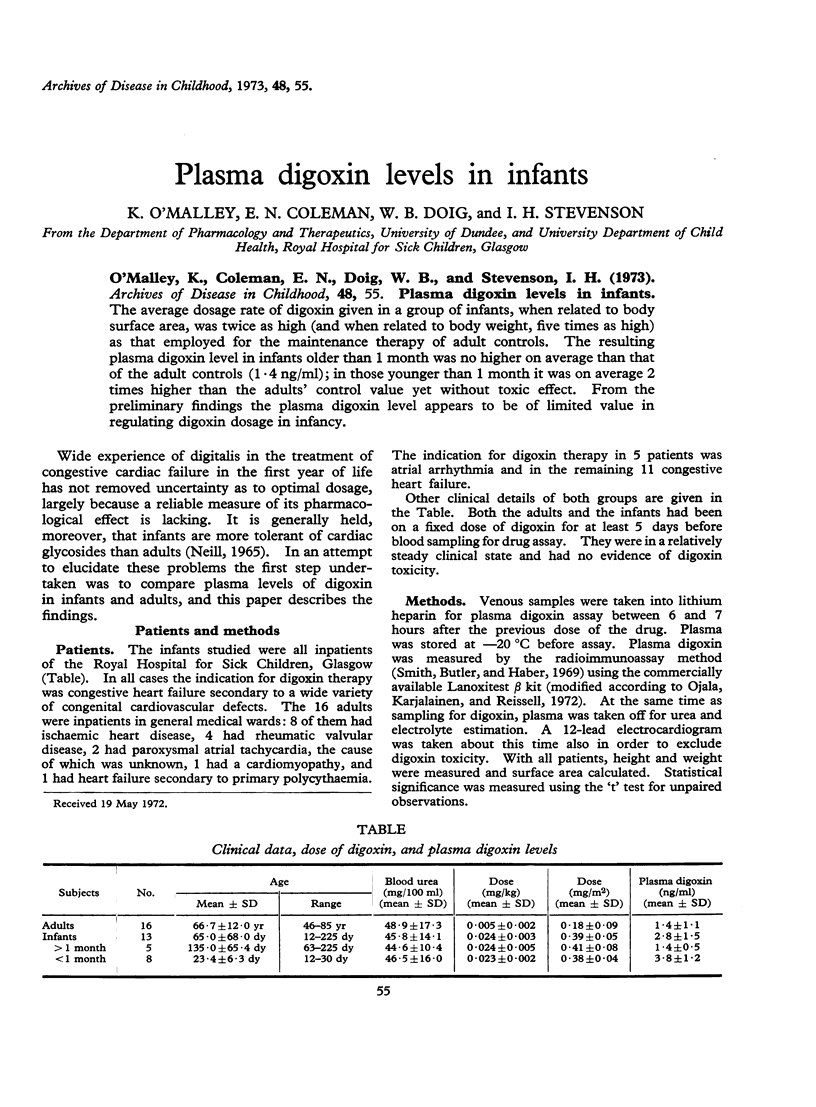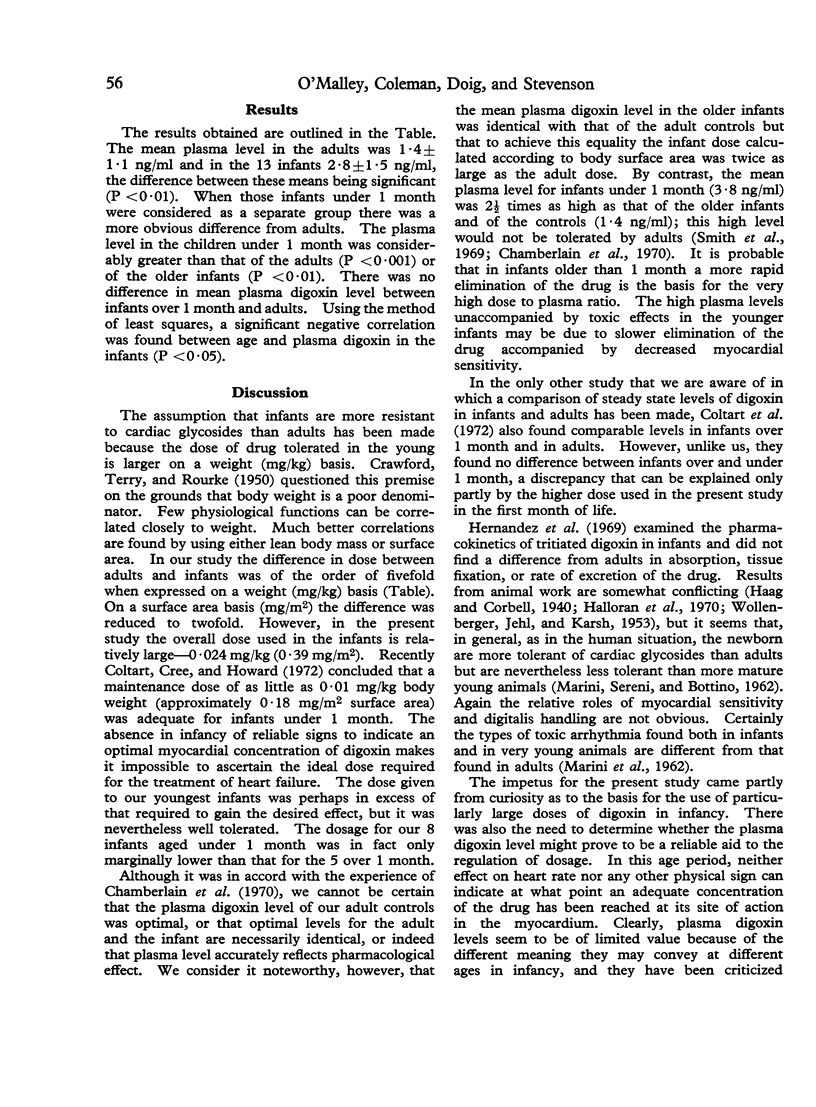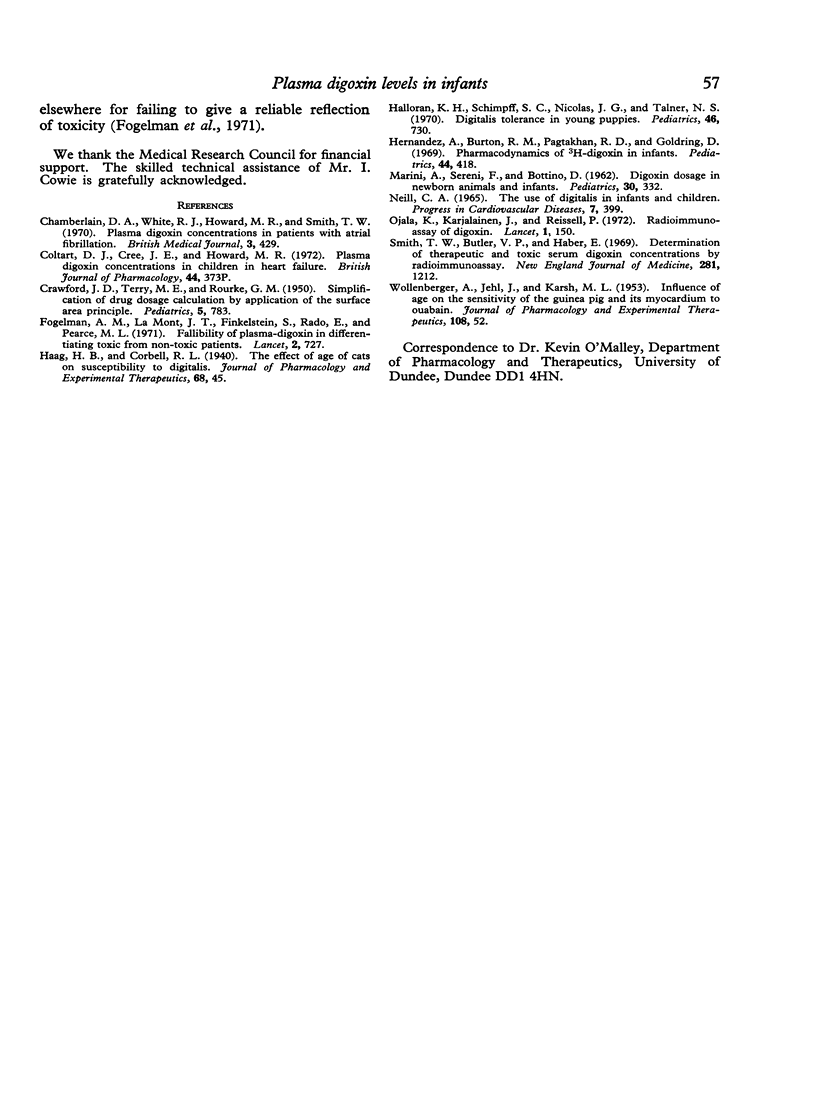Abstract
The average dosage rate of digoxin given in a group of infants, when related to body surface area, was twice as high (and when related to body weight, five times as high) as that employed for the maintenance therapy of adult controls. The resulting plasma digoxin level in infants older than 1 month was no higher on average than that of the adult controls (1·4 ng/ml); in those younger than 1 month it was on average 2 times higher than the adults' control value yet without toxic effect. From the preliminary findings the plasma digoxin level appears to be of limited value in regulating digoxin dosage in infancy.
Full text
PDF


Selected References
These references are in PubMed. This may not be the complete list of references from this article.
- CRAWFORD J. D., TERRY M. E., ROURKE G. M. Simplification of drug dosage calculation by application of the surface area principle. Pediatrics. 1950 May;5(5):783–790. [PubMed] [Google Scholar]
- Chamberlain D. A., White R. J., Howard M. R., Smith T. W. Plasma digoxin concentrations in patients with atrial fibrillation. Br Med J. 1970 Aug 22;3(5720):429–432. doi: 10.1136/bmj.3.5720.429. [DOI] [PMC free article] [PubMed] [Google Scholar]
- Coltart D. J., Cree J. E., Howard M. R. Proceedings: Plasma digoxin concentration in children in heart failure. Br J Pharmacol. 1972 Feb;44(2):373P–374P. [PMC free article] [PubMed] [Google Scholar]
- Fogelman A. M., La Mont J. T., Finkelstein S., Rado E., Pearce M. L. Fallibility of plasma-digoxin in differentiating toxic from non-toxic patients. Lancet. 1971 Oct 2;2(7727):727–729. doi: 10.1016/s0140-6736(71)92100-3. [DOI] [PubMed] [Google Scholar]
- Halloran K. H., Schimpff S. C., Nicolas J. G., Talner N. S. Digitalis tolerance in young puppies. Pediatrics. 1970 Nov;46(5):730–736. [PubMed] [Google Scholar]
- Hernandez A., Burton R. M., Pagtakhan R. D., Goldring D. Pharmacodynamics of 3H-digoxin in infants. Pediatrics. 1969 Sep;44(3):418–428. [PubMed] [Google Scholar]
- NEILL C. A. THE USE OF DIGITALIS IN INFANTS AND CHILDREN. Prog Cardiovasc Dis. 1965 Mar;7:399–416. doi: 10.1016/s0033-0620(65)80035-4. [DOI] [PubMed] [Google Scholar]
- Ojala K., Karjalainen J., Reissell P. Radioimmunoassay of digoxin. Lancet. 1972 Jan 15;1(7742):150–150. doi: 10.1016/s0140-6736(72)90718-0. [DOI] [PubMed] [Google Scholar]
- Smith T. W., Butler V. P., Jr, Haber E. Determination of therapeutic and toxic serum digoxin concentrations by radioimmunoassay. N Engl J Med. 1969 Nov 27;281(22):1212–1216. doi: 10.1056/NEJM196911272812203. [DOI] [PubMed] [Google Scholar]
- WOLLENBERGER A., JEHL J., KARSH M. L. Influence of age on the sensitivity of the guinea pig and its myocardium to ouabain. J Pharmacol Exp Ther. 1953 May;108(1):52–59. [PubMed] [Google Scholar]


